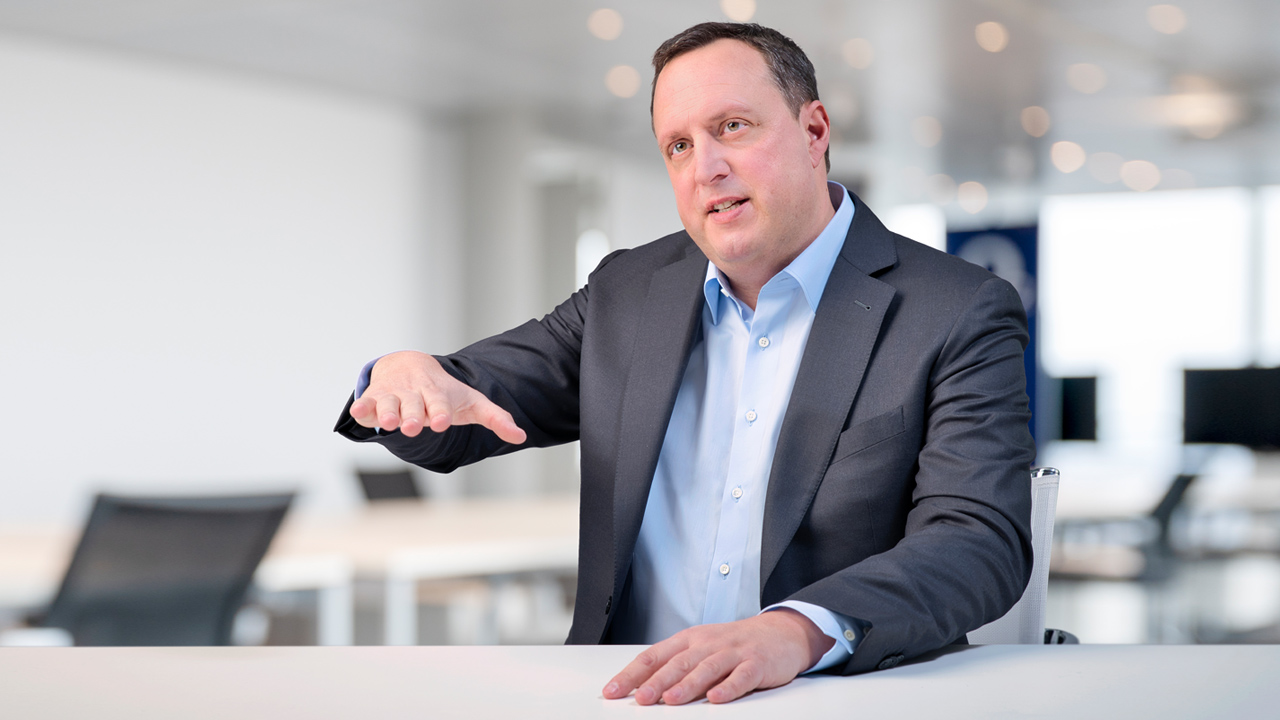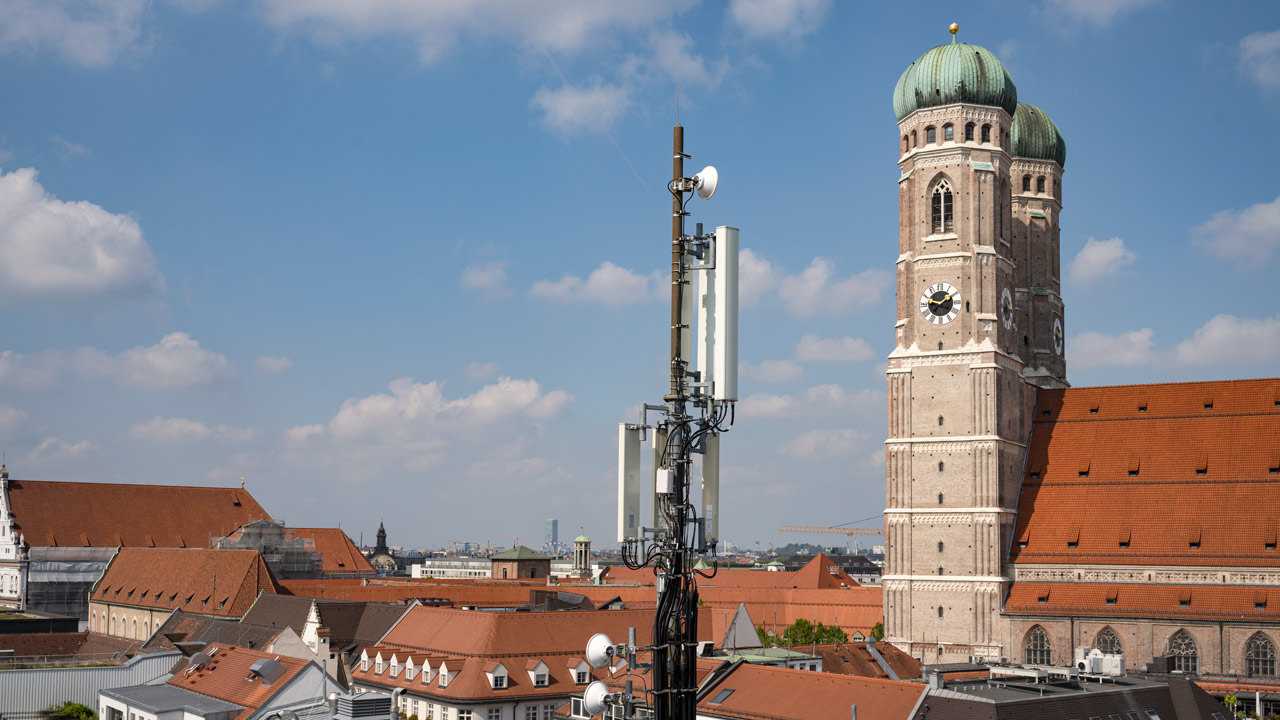18.01.2022
SZ interview with CEO Markus Haas:"5G will help the cloud achieve a breakthrough".
In an interview at the start of the year with the Süddeutsche Zeitung, CEO Markus Haas talks about digital opportunities for a new German government, ways to speed up network expansion and the benefits of 5G.
We are publishing excerpts of the interview here. The full interview appeared in the Süddeutsche Zeitung on January 18 and in advance in the online edition.

Markus Haas
SZ: Mr. Haas, you gave a very warm welcome to the new government, saying that the crucial course for the digital upswing had now been set. What makes you so optimistic?
Markus Haas: A fundamental change is now taking place after a long time. The new government is clearly focusing on climate protection, but we can only achieve the ambitious goals with clear digitization. We need to digitize everything we can, and we need the best networks. I'm observing a spirit of optimism, which is a huge opportunity.
SZ: What needs to happen first now?
Markus Haas: The expiring usage rights for mobile frequencies, in which billions have already been invested, must be extended promptly beyond 2025 so that the expansion targets for the mobile network in Germany can be raised. We need 5G throughout Germany - by 2025 at the latest, which is achievable. And then a reduction in bureaucracy is urgently needed.
[…]
SZ: What does that mean?
Markus Haas: It means that we are allowed to build a mobile communications site along simple, overarching regulations at suitable locations, and it will only receive final approval afterwards. If approval cannot be granted, we dismantle the site. So the risk is entirely on us. This approach would give us a real boost and speed up expansion considerably, because we would no longer have to wait very long for each individual permit. Incidentally, this could also be done for wind turbines.
SZ: So you're calling for a reversal of the current practice, which is not to build until approval has been granted.
Markus Haas: Exactly, a so-called fictitious approval is already common practice in many other EU countries, such as Spain. Tesla has also done this in Brandenburg, by the way: The new plant in Grünheide was built even though the approval process has not been completed. If this works for Tesla, it must also work for the mobile network, which is after all the backbone of our digitalization. Moreover, a cell tower certainly causes less damage than a factory for electric cars.
[…]

O2 / Telefónica Deutschland had a record year in terms of locations, population coverage, and especially 5G.
SZ: Speaking of goals: You wanted to roll out 5G nationwide by 2025. How is that coming along?
Markus Haas: We are right on target. We have achieved over 30 percent - and had another record year, also in terms of locations, population coverage and especially 5G.
[…]
SZ: What do users actually get out of 5G?
Markus Haas: 5G is the most important building block in the digitization strategy for the entire country. In my view, 5G will finally help the cloud achieve a breakthrough, so data will then only be stored in the cloud, i.e. virtually.
SZ: Why is that?
Markus Haas: Less than five percent of all data is in the cloud in this country today. So most of it is still stored somewhere locally, it uses server capacity, it's inefficient from a cost and energy consumption perspective. But we know that the volume of data will increase significantly once again. And the power of 5G will help the cloud break through for both business and consumer customers, because the technology works so fast that it's no longer a problem to have data not directly in the device, but to download and upload from the cloud.
[…]
SZ: All well and good, but the normal user doesn't actually need 5G.
Markus Haas: We need a network where everyone can have fun without limitations. With 5G, a million devices per square kilometer can log onto the network. Everyone and everything should be always on, and that's why we need the next generation of mobile communications. This is a quantum leap that is taking place. In the Christmas business, more 5G-capable devices were already sold in Germany than those with 4G. At O2 already since mid 2021. And when we all get to go to the Allianz Arena again, all 60,000 fans will be able to send photos and videos and surf the web without any technological limitations.
[…]
We are publishing excerpts of the interview here. The full interview appeared in the Süddeutsche Zeitung on January 18 and in advance in the online edition.